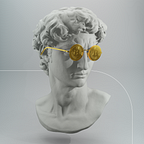Trust, perspective, and subjectivity from Schrödinger’s experiment
“Why am I in the box?
I bet my hooman will soon let me out?
Oh! what’s this thing beside me?” said Schrödinger’s cat after waiting for a few hours
“Trust doesn’t develop from always doing the right thing. Trust comes from taking responsibility when we do the wrong thing.”
-Simon Sinek
The cat would hope Schrödinger follows this quote if it becomes aware of its situation inside the box. He could have solved the dilemma by opening the box to save the cat, assuming the Geiger counter wasn’t triggered. If the cat is left there for long, it could die of other causes other than the bomb. I hope you can see where I am going with this. Leaving a mess unattended could lead to other problems not previously anticipated.
Sometimes, the ostrich effect comes into action, which probably explains why reason Schrödinger would not open the box as ignorance is bliss, but overcoming the resistance solves many problems. Apply this to your daily lives, and you’ll begin to see how much taking a little step at doing what’s right, breaking the resistance, can lead to a positive outlook for us.
But it depends on how you view the situation. From the cat’s perspective, it isn’t sure what’s going on, but soon the realization dawns on it about what’s happening depending on whatever happens. However, a cat isn’t as intelligent as a human, so it won’t understand the popularity Schrödinger got from the experiment, nor would it know why it’s in the box. To Schrödinger, he explained an important concept in quantum physics. To an animal lives activist, it is simply an unfair and inhumane treatment of the animal. What you perceive of the event is affected by the filters(biases) you put on.
A post from @visualizevalue on Twitter illustrates how our biases affect our perception
We all interpret events differently due to our cognitive biases, thus filtering the information we get. Despite the animals’ lives activist’s opinion, if he stepped back and tried to understand Schrödinger’s motive, he would have come up with a common dilemma, in which you see the negative side of a circumstance while being appreciative of its positive aspects. Would he weigh the positive and negative effects of the experiment to determine the overall outcome and see if it was worth it? That is for him to decide.
Often, we make decisions for our own benefits alone and unintentionally disregard the good of others. In western Nigeria, the use of electric generators is a good example. You turn it on to power your apartment while your neighbors suffer from the noise. You will surely answer yes if someone asks you if turning on the generator is a good thing. However, if your neighbor is asked to pay a small amount to get it off, he probably won’t mind since he’s been put in an uncomfortable position and perceives your motives as negative. There is always a flip side for every coin, and once again, by tossing the coin, it only favors one party. Both parties in this case will make decisions to better their own situation while harming others unintentionally.
No one knows the whole story, probably
There have been so many narratives of Schrödinger’s experiment, which I’ve learned about, but that doesn’t mean I know what really happened. We often think we know enough and that our biases aren’t affecting our perception, but that can’t be farther from the truth.
Another illustration from @visualizevalue helps explain that well too
While our biases already do a great job at affecting our perception, sometimes, we can’t see the big picture from our perspective. In the scenario described in the illustration, you probably have to go around the circle to get the full picture of what happened. Your cognitive biases, of course, will affect what you perceive.
